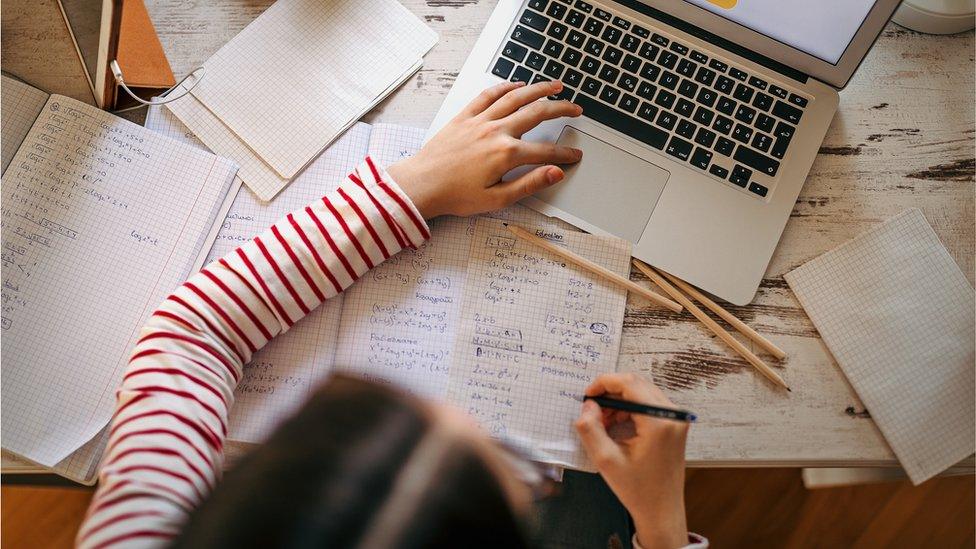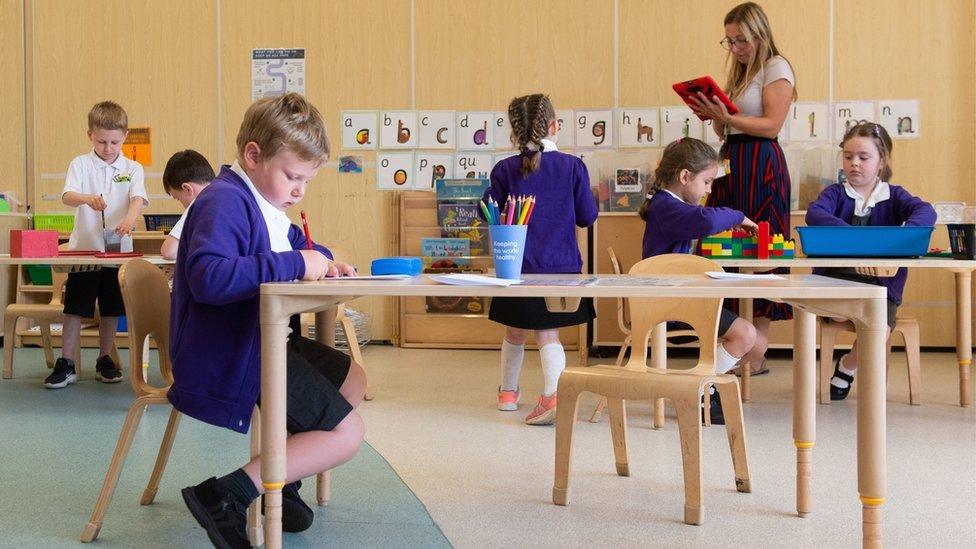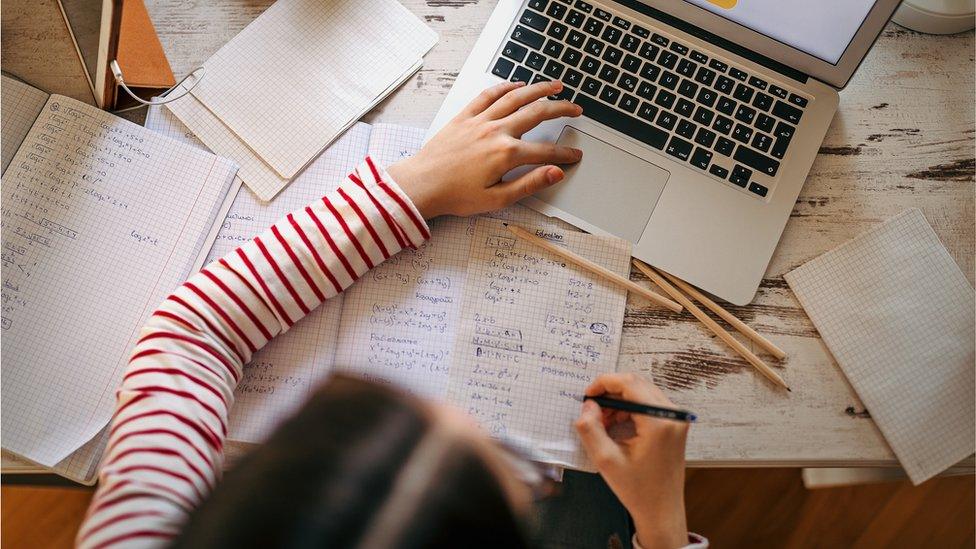Coronavirus: Children in Wales 'left behind' by lack of online lessons
- Published

Wales had the lowest number of pupils accessing four or more online lessons per day in lockdown
Children in Wales are being "left behind" by a lack of online schoolwork during the coronavirus lockdown, Plaid Cymru has said.
A survey by University College London (UCL) found only 1.9% of Welsh pupils had four or more daily online lessons.
Francis Green, the report's author, said the lack of teaching would "exacerbate existing inequalities".
The Welsh Government said its online platform was playing a "crucial role" in helping education.
Online lessons were categorised as live meetings between teachers and pupils over the internet, which were less common than offline lessons, which consist of worksheets and assignments.
The report found 1.9% of students in Wales received four or more online lessons per day, compared with the UK average of 7%.
Just over a quarter of students received two to three hours of online learning, while 72.5% accessed an hour or less.
The survey of 4,559 children in the UK, including 234 from Wales, also found Wales was only ahead of the north east of England for the percentage of pupils accessing four or more pieces of offline learning.

Schools in Wales are set to reopen on 29 June
Sian Gwenllian, Plaid Cymru's shadow education minister, said the results of the survey were "incredibly disappointing".
She said: "Thousands of children are being left behind and the attainment gap between those from the most advantaged backgrounds and those from the most disadvantaged backgrounds has only widened.
"The priorities of the Welsh Government's connectivity program should be looked at urgently to ensure digital connectivity is not a barrier for disadvantaged children and their education.
"We urgently need more data, more research and more transparency.
"It beggars belief that the Welsh Government isn't already collecting data and setting targets. We need to know how many pupils don't have a personal laptop or proper internet access. We need to know how many pupils are logging on to their education - and how many have no contact at all."
'Exacerbate inequalities'
Meanwhile Prof Green, professor of work and education economics at UCL, said Wales was behind the rest of the UK in some areas of online education.
"The greatest fear is the education of a whole generation will be significantly held back," he told BBC Radio Wales.
"Even if children are deprived for weeks, let alone months, then there are significant effects on their educational development.
"The effects are going to be exacerbating existing inequalities."
The Welsh Government said: "Schools in Wales are deploying a wide range of approaches to ensure continuity of learning for pupils with the support of our 'stay safe, stay learning' plan during the pandemic.
"Our leading online learning platform Hwb continues to play a crucial role in supporting the delivery of education during this incredibly challenging period, with an average of 2.5 million logins per month over the last three months - a 134% increase on the previous year.
"There have also been over 9.5 million page views per month over the same period - a 157% increase on the previous year. More than 99% of schools are actively engaged in using the platform.
"It is our intention to use the last weeks of the summer term to make sure pupils, staff and parents are prepared - mentally, emotionally and practically - for the new normal in September."

There's growing concern about big variations in pupils' experience of home learning, especially when the Welsh Government says it will be a big part of education for the "foreseeable future".
Even with schools reopening at the end of this month, pupils will only get a very limited amount of face-to-face teaching and the message is that "blended" learning will continue.
At the same time many private schools are providing a full timetable of live lessons, and there are fears about widening gaps in children's education.
Last week, the Children's Commissioner called for a "step-up" in what's being provided and minimum expectations of what schools should deliver.
Some teaching unions will be wary of placing extra demands on teachers.
But there's pressure too on the government to give the issue more attention, alongside the limited return to school buildings.
- Published8 June 2020

- Published3 June 2020
